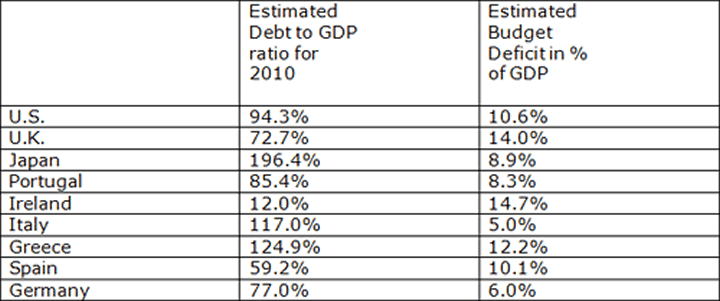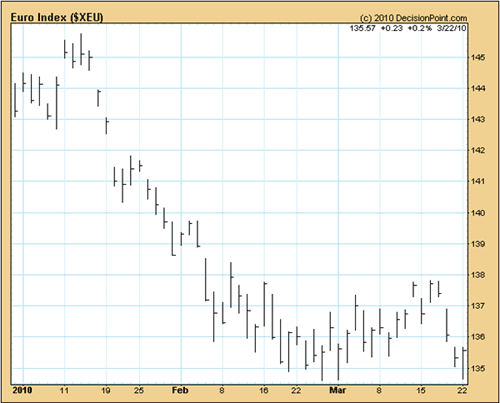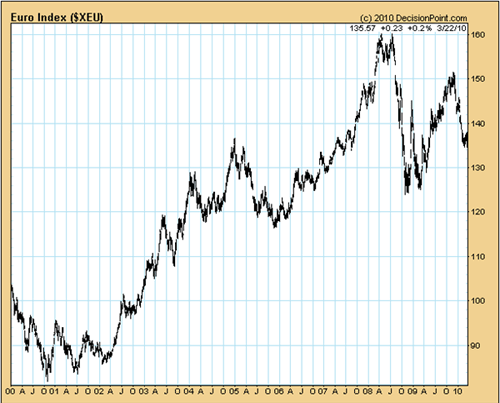Euro Currency Bashing, How Perceptions Have Changed
Currencies / Euro Mar 25, 2010 - 10:33 AM GMTBy: Claus_Vogt
 Not long ago the euro was rising, and everybody seemed to hate the U.S dollar. During that market phase I constantly asked a rhetorical question: Why do you think the euro is any better than the dollar?
Not long ago the euro was rising, and everybody seemed to hate the U.S dollar. During that market phase I constantly asked a rhetorical question: Why do you think the euro is any better than the dollar?
Now the European sovereign debt problems are making headlines, and everybody seems to hate the euro. Again I ask a rhetorical question: Why do you think the dollar is any better than the euro?
The Dollar Is Not Better Than the Euro, And the Euro Is Not Better Than the Dollar
Both currencies, the euro and the dollar, are backed by nothing but politicians’ promises to finally return to some kind of serious fiscal and monetary policy. Both currencies are being inflated in lockstep. And both, the U.S. and Euroland, have mountains of explicit and even larger mountains of implicit sovereign debt.
The former is debt officially issued in the form of treasury notes and bonds. The latter is debt in the form of promises of the social welfare state.
Take a look at the following table. It shows the sovereign debt situation in several countries.

As you can see, the sovereign debt problem is not contained to some minor countries at Europe’s periphery. Quite to the contrary, all major western countries and Japan have huge debt problems! This trap began many years ago. And now we are getting closer to pay day.
When thinking through this frightening debt situation, you can even find a structural argument in favor of the euro … the Europeans have at least formulated some rules concerning budget deficits and sovereign debts. That tells me they are aware that some monetary and fiscal prudence is necessary to guarantee sound money.
Unfortunately, they don’t obey these rules.
In the U.S., politicians and economists don’t even contemplate having any rules. They just decide as they go … not very assuring, is it?
In the Larger Picture, the Euro’s Current Decline Looks Very Moot
Now look at the euro chart below. Since the beginning of the year the European currency fell from nearly 1.50 to around 1.35 — a 10 percent loss.

Source: www.decisionpoint.com
It’s hard to believe all the media ballyhoo and euro bashing going on over nothing more than a 10 percent loss! Obviously the atmosphere against the euro is much worse than reality.
This evaluation gets even stronger when you look at the next chart, a longer-term one. It shows the euro since its inception in 2000. Using this scale makes it very clear how unimportant the currency’s movement of the past few months has really been.

Source: www.decisionpoint.com
Just a year ago the euro was as low as 1.25. But now at 1.35 does it mean the end of the European Union or the end of the euro as many pundits think? I really doubt it.
Best wishes,
Claus
Weiss and Weiss Research analysts offering the latest investing news and financial insights for the stock market, including tips and advice on investing in gold, energy and oil. Dr. Weiss is a leader in the fields of investing, interest rates, financial safety and economic forecasting. To view archives or subscribe, visit http://www.moneyandmarkets.com.
© 2005-2022 http://www.MarketOracle.co.uk - The Market Oracle is a FREE Daily Financial Markets Analysis & Forecasting online publication.



